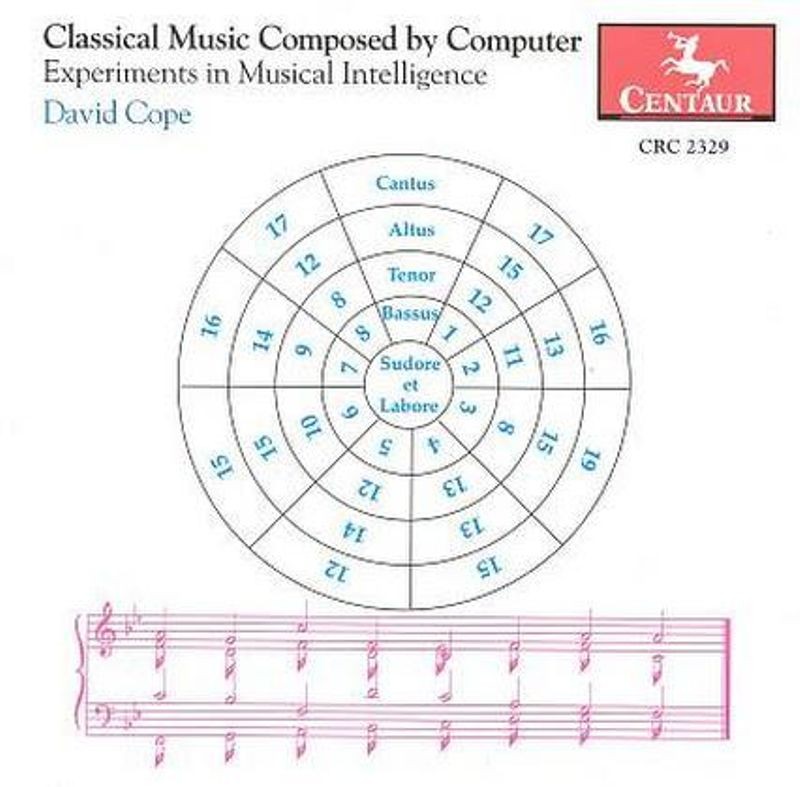David Cope is a computational artist who created avant-garde works during the 1970s that blurred music and computer science. Originally a traditional musician and composer, Cope developed great interest in the algorithmic area of commuters, and he began finding ways to apply programming techniques into music. The program he developed is now known as Experiments in Musical Intelligence, also known as EMI, which is an analysis program that uses its output to “compose new examples of music in the style of the music in its database without replicating any of those pieces exactly” (Cope). As such, program would analyze the music that would be inputed into the EMI database, and new works would be created in a similar style. And with this data- driven approach, or EMI’s style, Cope began to create new innovative musical pieces that referenced the style of legendary composers of the past, and he began observing unique patterns that were unknown before. With these generative music pieces, Cope faced many public criticisms, particularly revolving around how creative computers can be. Yet, he still overcame these challenges as he found to interweave his own creative style into the many more albums he produced in later years.

![[OLD FALL 2019] 15-104 • Introduction to Computing for Creative Practice](https://courses.ideate.cmu.edu/15-104/f2019/wp-content/uploads/2020/08/stop-banner.png)